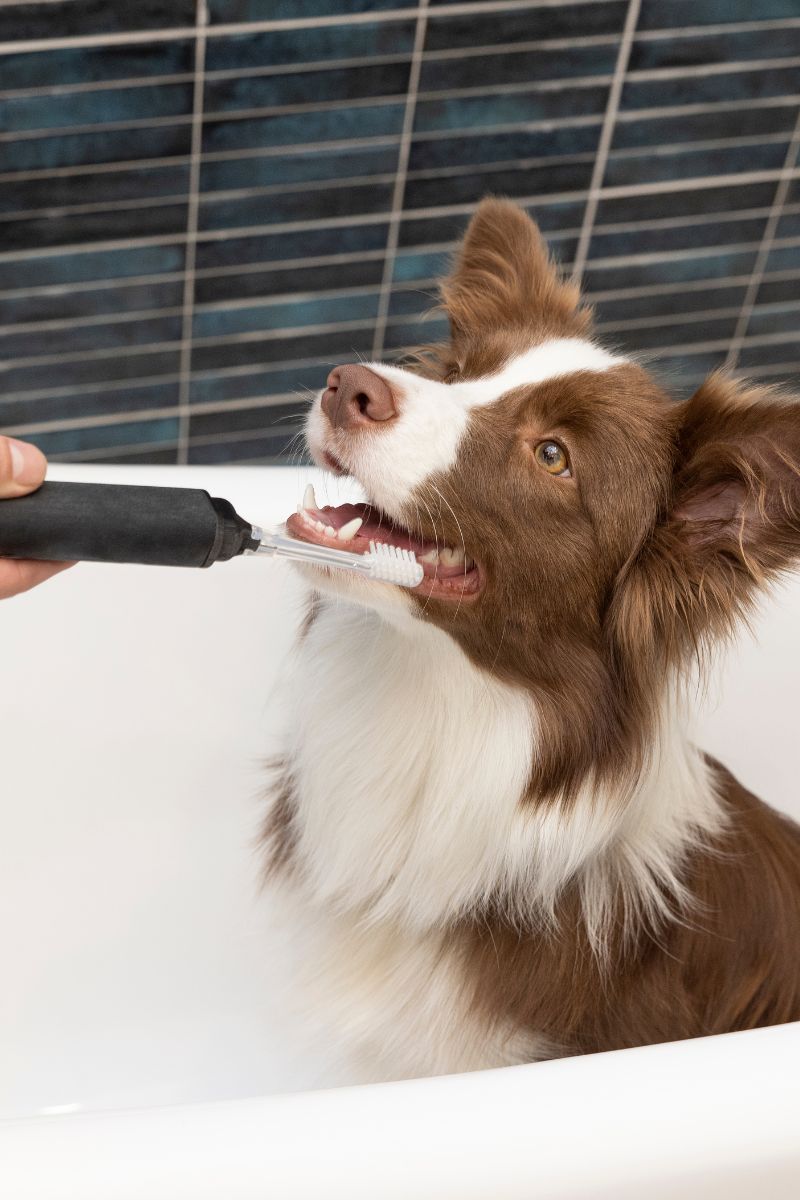Canine and Feline Dental Health and Prophylaxis
Why is Dental Health Important for Your Pet?
Oral health is critical to the overall well-being of both dogs and cats. Poor dental hygiene can lead to painful conditions, chronic infections, and even more severe systemic health problems, including kidney, liver, and heart disease. A regular dental care routine can greatly improve your pet’s quality of life and help prevent the need for costly and extensive dental treatments in the future.
Key Benefits of Maintaining Good Oral Health:
- Prevention of periodontal disease – A common issue that affects most pets over the age of 3.
- Reduced risk of systemic infections – Bacteria from the mouth can spread to vital organs.
- Fewer issues with bad breath – Poor oral hygiene is the leading cause of halitosis in pets.
- Improved overall health – Healthy gums and teeth support overall comfort and well-being.
Understanding Dental Disease in Pets
Dental disease typically progresses in stages:
- Gingivitis: The early stage of gum disease, where the gums become inflamed, red, and may bleed. This is often reversible with proper dental care.
- Periodontal Disease: When gingivitis progresses, it leads to deeper infection, destruction of the structures supporting the teeth, and eventual tooth loss.
- Advanced Periodontal Disease: Severe infections that can cause significant pain, tooth abscesses, and even systemic health problems due to bacteria entering the bloodstream.
Common Symptoms of Dental Problems:
- Bad breath (halitosis)
- Drooling or excessive salivation
- Difficulty eating, or reluctance to chew on toys or food
- Swollen, red, or bleeding gums
- Visible tartar build-up
- Pawing at the mouth or face
- Decreased appetite

The Role of the Dental
A “dental” is an essential part of maintaining your pet’s oral health, and it actually involves so much more than cleaning. What most people call a “dental” is referred to by veterinary dentists as a Complete Oral Health Assessment and Treatment (COHAT).
What Does a COHAT Include?
- Comprehensive oral exam: The veterinarian will evaluate your pet’s mouth for signs of disease, including gum health, tooth stability, and signs of infection.
- Scaling and polishing: Professional equipment is used to safely remove plaque and tartar buildup, both above and below the gumline.
- Dental X-rays: Dental radiographs are taken to evaluate the health of the teeth and the structures below the gums. Many dental issues are not visible without X-rays.
- Tooth extractions: In cases of severe decay or infection, it may be necessary to remove damaged or diseased teeth to prevent further pain and complications.
How Often Should Your Pet Have a COHAT?
The frequency of dental cleanings depends on your pet’s age, breed, and dental health history. On average, most pets require a professional cleaning every 1-2 years, though some may need it more frequently, especially if they are predisposed to dental issues such as small breeds or those with certain health conditions.
Signs Your Pet Might Need a COHAT Soon:
- Visible tartar or plaque buildup
- Red or inflamed gums
- Chronic bad breath
- Difficulty eating or chewing
At-Home Care for Your Pet’s Teeth
While professional dental cleanings are important, regular at-home care is essential to prevent dental disease from developing. Here’s how you can help:
- Brushing: Brushing your pet’s teeth is the gold standard for home care. Aim to brush their teeth at least 3 times a week with a toothbrush and toothpaste formulated for pets.
- Dental Supplements: There are many dental products on the market including chew treats, toys, diets, and water additives. It’s important to look for a Veterinary Oral Health Council (VOHC) seal of approval when shopping (shown below) to ensure you are using a quality product that has been proven to be effective and safe for your pet(s).
- Diet: There are several VOHC-approved dental diets that can be used as maintenance a diet or as treats. The kibbles in these diets are specifically designed to grind against teeth and help remove plaque +/- tartar.
Look for this seal when shopping for at-home dental care products or visit vohc.org for a complete list of approved canine and feline dental health products:

4. Regular Check-ups: Regular veterinary exams include dental assessments that can catch any issues early, allowing for more effective treatment.
Special Considerations for Cats
Cats can be particularly prone to certain dental conditions like feline odontoclastic resorptive lesions (FORLs), which are painful lesions that affect the teeth. Regular dental check-ups and professional cleanings are crucial for early detection.
Signs of Dental Disease in Cats:
- Dropping food while eating
- Pawing at the mouth or face
- Oral bleeding or excessive drooling
- Difficulty grooming
Why Choose Professional Dental Care for Your Pet?
Veterinary dental procedures (COHATs) provide a higher level of care compared to at-home brushing alone. With advanced diagnostic tools such as dental X-rays and professional equipment, our team can thoroughly examine your pet’s teeth, identify hidden issues, and provide treatments that will keep your pet’s mouth healthy and pain-free.
Remember: Preventative care is much more affordable and less painful than treating advanced dental disease, so schedule regular exams and cleanings for your pet to ensure their long-term health.
Additional Resources for Clients:
VOHC Accepted Products: https://vohc.org/accepted-products/
Fear Free Tooth Brushing: https://www.youtube.com/watch?v=vb6Uaepq8m4
Location
520 Jungermann Rd.
St. Peters, MO 63376
Contact Info
636-447-3727
wecare@spencercreekvet.com
Open Hours
Sat: 8am - 1pm
Sun: Closed
Get in touch!
Our team is here to help! Complete the form below to get in touch. If you're in need of immediate assistance, please contact us at 636-447-3727.
Ready to come see us?
Request your next appointment online in minutes from any device. We look forward to seeing you soon!
